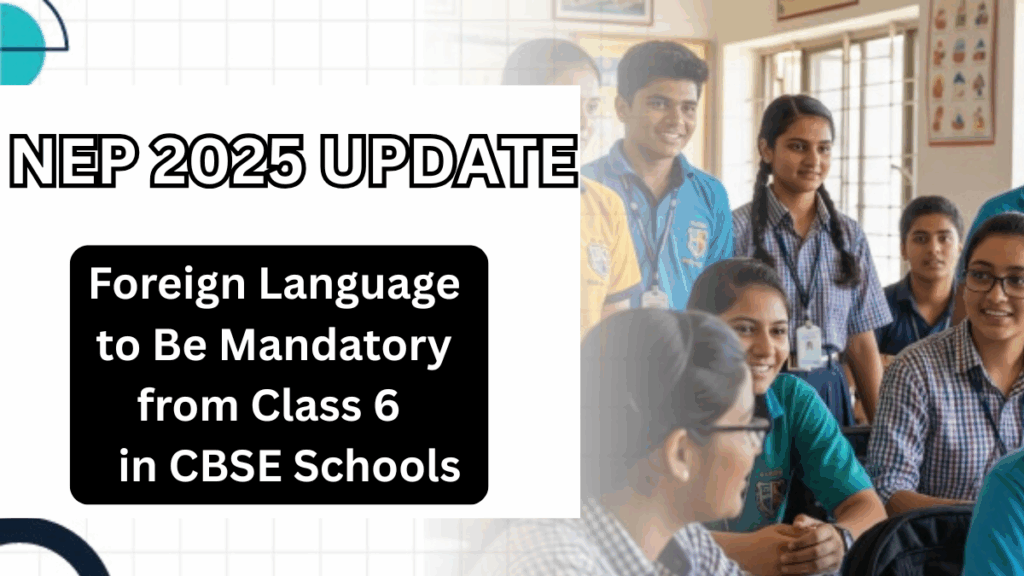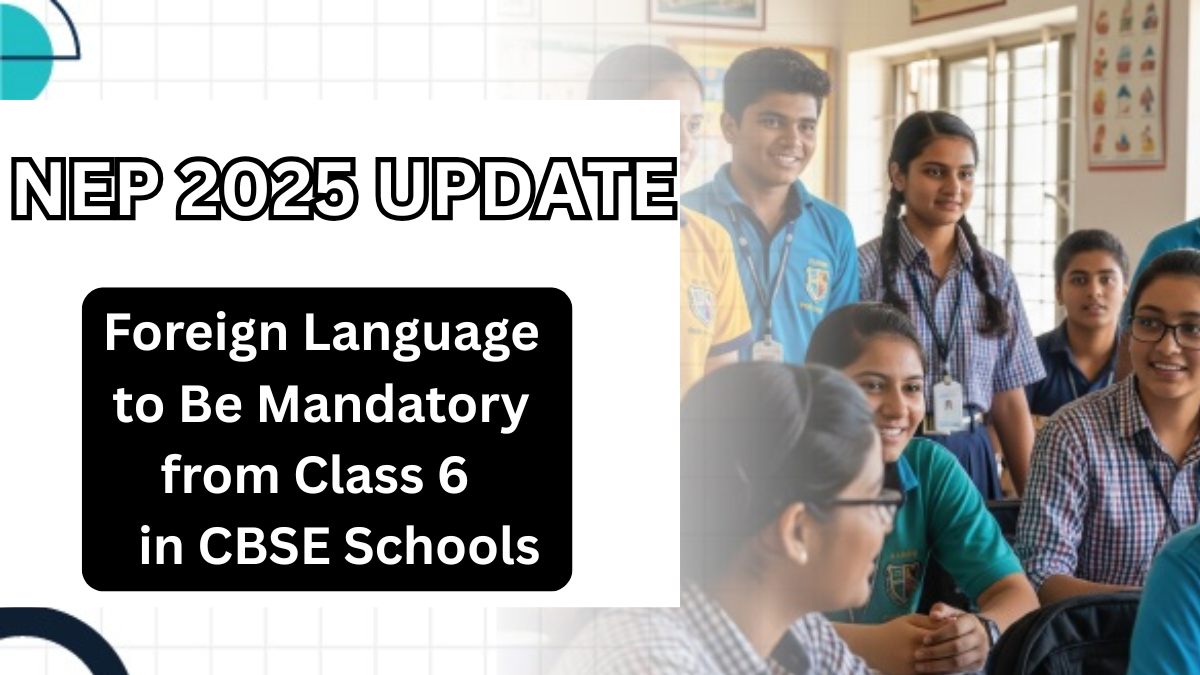The National Education Policy (NEP) 2025 Language Policy is introducing a major shift in the CBSE curriculum. Starting from Class 6, students will be required to study a foreign language as part of their regular syllabus. This move aims to prepare young learners for a more globally connected and culturally diverse world.

What’s Changing in the CBSE Curriculum
Under the CBSE curriculum update, the introduction of foreign languages aligns with NEP’s focus on multilingual education and global competence. Previously, students focused mainly on regional languages along with English. Now, the new syllabus expands to include a choice of global languages such as:
-
French
-
German
-
Spanish
-
Japanese
-
Korean
-
Mandarin (Chinese)
Schools will have the flexibility to offer languages depending on their resources and qualified faculty.
Objectives of the NEP 2025 Language Policy
The NEP 2025 Language Policy isn’t just about adding another subject—it’s about developing well-rounded, globally aware learners.
Key objectives include:
-
Promoting multilingual proficiency from an early age
-
Enhancing cross-cultural understanding
-
Expanding career opportunities in global industries
-
Strengthening cognitive and communication skills
Implementation Plan
The CBSE curriculum update for language education will be introduced in phases.
| Implementation Stage | Details | Timeline |
|---|---|---|
| Pilot Phase | Selected CBSE schools in metro cities will start offering foreign language classes. | 2025–2026 Academic Year |
| Expansion Phase | Additional schools will join based on pilot program outcomes. | 2026–2027 Academic Year |
| Full Implementation | All CBSE schools will make foreign language learning mandatory from Class 6 onwards. | By 2028 |
How This Benefits Students
The inclusion of foreign languages in the CBSE curriculum provides long-term academic and professional benefits.
-
Global Opportunities – Opens pathways to study and work abroad.
-
Cultural Awareness – Encourages respect for global traditions and values.
-
Cognitive Growth – Enhances problem-solving, memory, and adaptability.
-
Career Edge – Builds a valuable skill set for international communication.
The New Syllabus Structure
The new syllabus will promote an engaging and interactive approach to language education.
| Component | Description |
|---|---|
| Basic Language Skills | Focus on listening, speaking, reading, and writing |
| Cultural Learning | Introduction to customs, traditions, and global festivals |
| Assessment Method | Project-based learning, oral tests, and continuous evaluation |
| Integration with Other Subjects | Linking language with art, history, and global studies |
Challenges and Preparedness
Implementing this language education reform may pose certain challenges:
-
Shortage of trained language teachers, especially in rural areas
-
Need for standardized learning material and evaluation methods
-
Infrastructure upgrades for digital and audio-visual support
To address these, CBSE will partner with international language institutes and provide teacher training programs to ensure smooth adoption of the policy.
What Parents Should Know
Parents play an important role in supporting their child’s language learning journey. Encouraging students to practice through movies, books, or language apps can help build fluency and confidence.
Final Thoughts
The NEP 2025 Language Policy represents a forward-thinking reform in India’s education system. By making a foreign language mandatory from Class 6, the CBSE curriculum update ensures that students are equipped with essential global skills. This change in the new syllabus lays the foundation for a more connected, multilingual generation ready to thrive in the international arena.
FAQs
1. Which classes will be affected by the NEP 2025 Language Policy?
The policy applies to students from Class 6 onwards across all CBSE-affiliated schools.
2. Can students choose which foreign language to study?
Yes, students can choose from the options provided by their school, depending on available teachers and infrastructure.
3. How will this change impact the current CBSE syllabus?
The CBSE curriculum update will incorporate a foreign language as an additional subject with balanced class hours and evaluation systems.
4. What steps are being taken to ensure enough qualified teachers?
CBSE is collaborating with language institutes and global education boards to provide specialized training for teachers.
Click here to learn more
